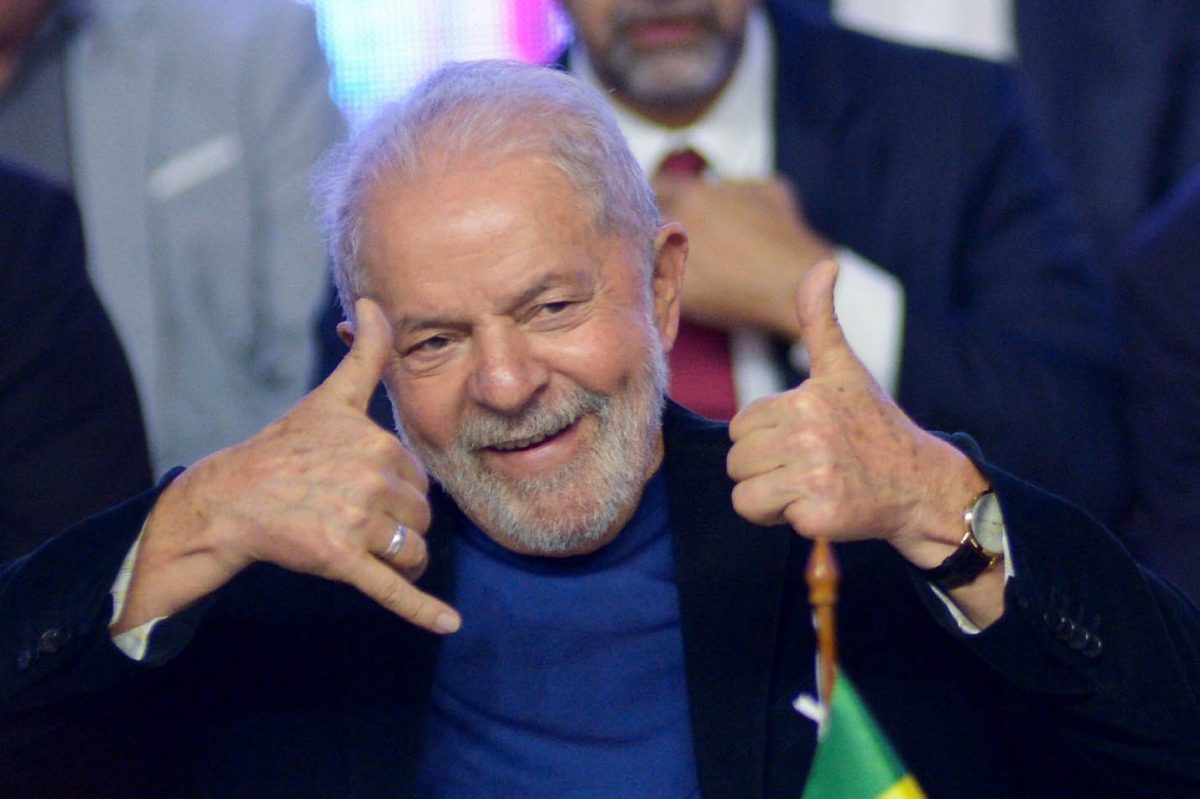GENEVA, (Reuters) – The U.N. human rights committee said yesterday that Brazil graft investigators violated due process in bringing a case against former President Luiz Inacio Lula da Silva that led to his imprisonment and barred him from running for office in 2018.
The finding follows a decision last year by Brazil’s Supreme Court to annul his corruption conviction, allowing him to run for president again in this October’s election.
Lula, who spent a year and a half in jail, called the U.N. decision “extraordinarily soul-cleansing” as he prepares to run against far-right incumbent President Jair Bolsonaro.
Opinion surveys show the left-wing former union leader is currently leading the race, with 41% of voter intentions in a first-round vote, compared to 32% for Bolsonaro.
“Procedural violations rendered Lula’s prohibition to run for president (in 2018) arbitrary and therefore in violation of his political rights, including his right to run for office,” said a statement from the committee of independent experts.
Lula, who was president from 2003 to 2010, filed a complaint to the committee in 2016 about how he was brought to trial in Brazil’s biggest-ever corruption investigation, called “Operation Car Wash”.
The U.N. committee, which oversees countries’ compliance with the International Covenant on Civil and Political Rights, had asked Brazil to let Lula to run for presidency in 2018.
The committee’s panel of 18 experts found that wiretaps during the probe and their disclosure to the media violated his right to privacy, while actions by the judge and prosecutors violated his right to presumption of innocence.
The committee urged Brazil “to ensure that any further criminal proceedings against Lula comply with due process guarantees and to prevent similar violations in the future.”
During his time in office, Lula oversaw a period of dramatic economic growth – driven by a commodity boom – that helped lift millions out of poverty. However, his Workers Party was later consumed by the sprawling Car Wash probe, which convicted several of his allies for a record-breaking corruption scheme.
Lula’s lawyer, Cristiano Zanin, said the U.N. committee decision backed up arguments that the convictions handed down by former judge Sergio Moro, who oversaw much of the Car Wash investigation, were politically motivated.
“Everything they did to Lula was illegal and arbitrary,” Zanin told reporters in Sao Paulo.
He noted that the committee gave Brazil’s government 180 days to say how it will remedy the violation of Lula’s rights and make its conclusions widely known to Brazilians.
Moro, who served as Bolsonaro’s justice minister until April 2020, denied Lula had been persecuted politically during the sprawling investigation into bribes and over-priced contracts with oil company Petrobras and other state enterprises.
Annulling Lula’s conviction was a “big mistake” by the Supreme Court and it influenced the U.N. committee’s decision, he said in a statement.
“Anyhow, not even the committee denied there was corruption at Petrobras or said Lula was innocent,” Moro said.






